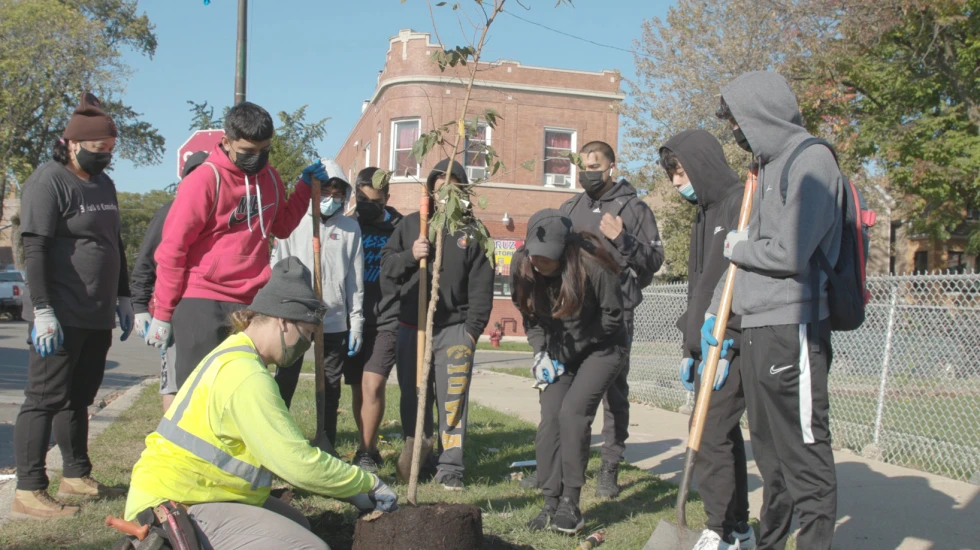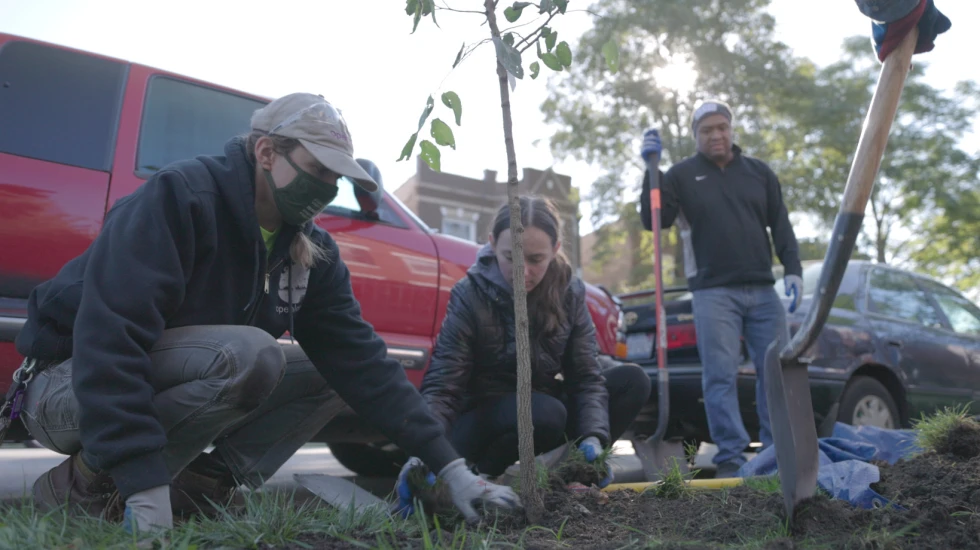
Want to help out Chicago’s environment?
Plant trees, says Michael Dugan, director of forestry for the conservation group Openlands.
And that’s just what the city hopes to do.
Mayor Lori Lightfoot announced a new initiative Friday aiming to greatly expand Chicago’s tree canopy over the next five years.
It will plant 75,000 trees, prioritizing historically overlooked areas on the South and West sides to make tree coverage across the city more equitable.

After all, a shortage of trees has consequences, Dugan said.
Fewer trees means higher temperatures, he said. Concrete and other surfaces absorb heat during the day, and radiate heat at night, he said, making urban centers much hotter than other areas. Trees help deflect some of that radiation, he said.
That’s really important, from an equity standpoint, Dugan said.
“Not all folks in the city have air conditioning. When folks are older or they have health ailments, extreme heat is extremely dangerous. So anything we can do to cool our cities is definitely a positive.”
Fewer trees also can mean more pollution and flooding, he said.
Dugan appreciates that the new plan will focus on communities most in need.
“Generally any tree planted anywhere is a net positive,” he said, but focusing on high-impact areas “can make a significant difference.”
The initiative will use the Chicago Department of Public Health’s “community tree tool” to identify priority areas. The tool takes a map of existing trees, then factors in things such as air quality and economic wellbeing.
A working group of 70 people from the community will also be involved in the effort.
Beginning in May, residents will be able to help. After training through the Community Tree Ambassador program, they will be able to propose locations for trees, and monitor trees already planted.
Rolando Favela of The Southwest Collective said the plan increases equity not just for people, but also for wildlife.
Trees are important habitats for many birds, he said. And planting more trees may help increase the diversity of bird species on the Southwest side.
He’s excited for the planting to begin.
“There’s been apathy and neglect for so long, and now there’s a deliberate approach with the city’s initiative,” he said. “I’m humbled and grateful and excited.”








